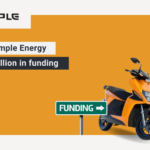
India’s EV Growth Depends on Easy Financing and Strong Resale Value, Beyond Just Advanced Tech
India’s electric vehicle (EV) revolution faces a challenge that has little to do with engineering or consumer demand. The real obstacle lies in financing and resale — if buyers cannot secure affordable loans today or recover value when they sell tomorrow, the entire promise of sustainable mobility risks collapse.
While EV manufacturers focus on developing advanced batteries, swappable systems, and digital dashboards, lenders remain reluctant to underwrite EVs due to uncertainties over battery health, range degradation, and residual value. The lack of reliable metrics forces non-banking financial companies to raise interest rates, lower loan-to-value ratios, and price insurance cautiously. Resale pricing, meanwhile, remains speculative and inconsistent.
In mature automotive markets, the used vehicle sector is often larger than the new vehicle segment, providing liquidity and consumer confidence. In India, however, the used EV market is still nascent — with no trusted battery certification, inconsistent pricing, and limited financing. Early adopters looking to upgrade are stuck, while potential buyers and dealers lack transparent valuation frameworks.
Fintech companies may hold the key to unlocking this bottleneck. By leveraging data, AI-driven residual value models, and real-time battery analytics, fintech platforms can provide reliable valuation tools that lenders and buyers trust. Battery health scoring systems — similar to credit scores — could become industry benchmarks, while dynamic, transparent pricing platforms would allow seamless resale and refinancing of EVs.
Original equipment manufacturers (OEMs) have been slow to address this gap. Despite holding massive performance datasets, many OEMs hesitate to share battery degradation information, citing intellectual property concerns. Without transparent and standardised data, the resale market cannot mature and financing will remain restrictive.
The next wave of innovation is likely to come from independent fintech platforms rather than government schemes or OEM initiatives. These platforms can integrate battery analytics, resale marketplaces, and financing options into a single trust framework — turning batteries from opaque liabilities into valuable, tradeable assets.
If India is to democratise EV adoption at scale, the industry must stop treating battery health as a proprietary secret and start recognising it as an asset that determines long-term value. The players who make EV risk measurable and resale liquidity possible will not only lead the market — they will define its future.










